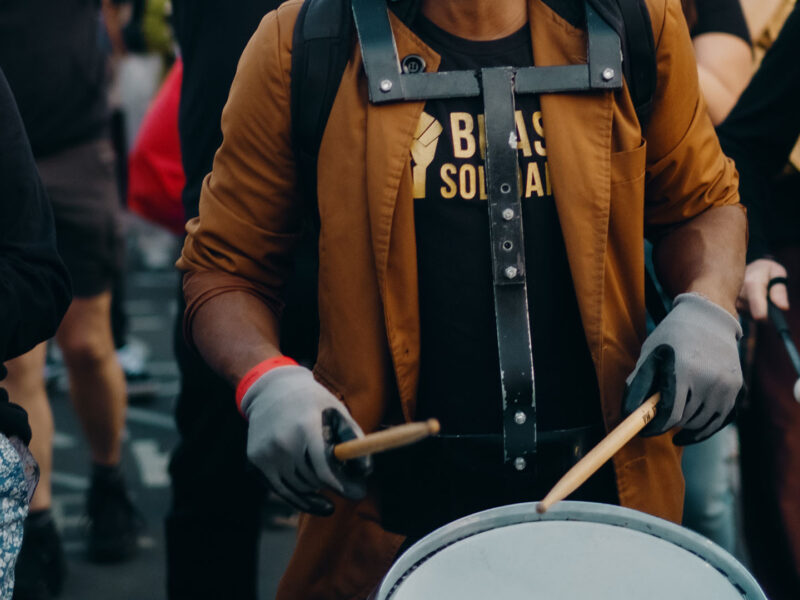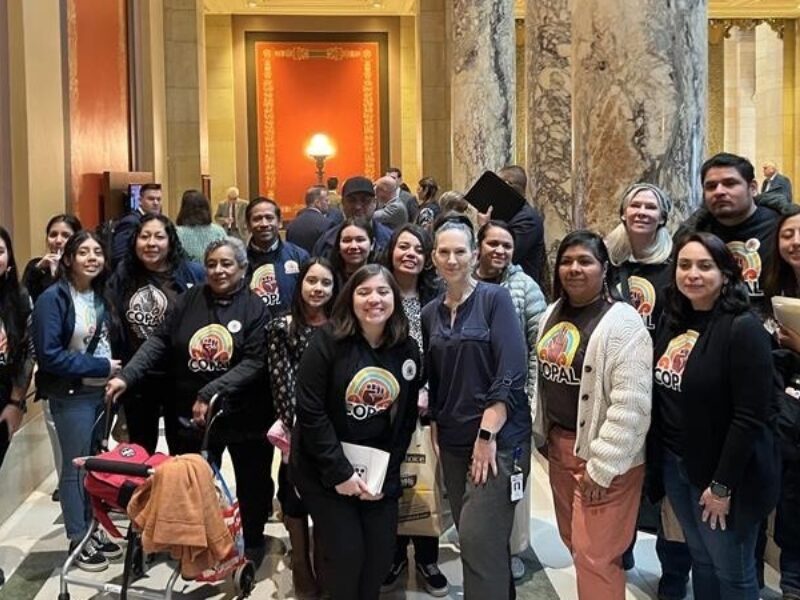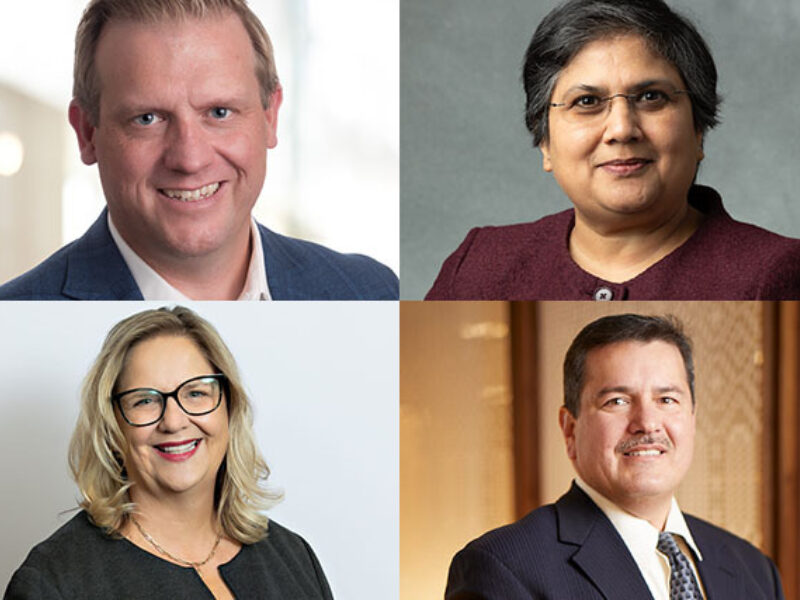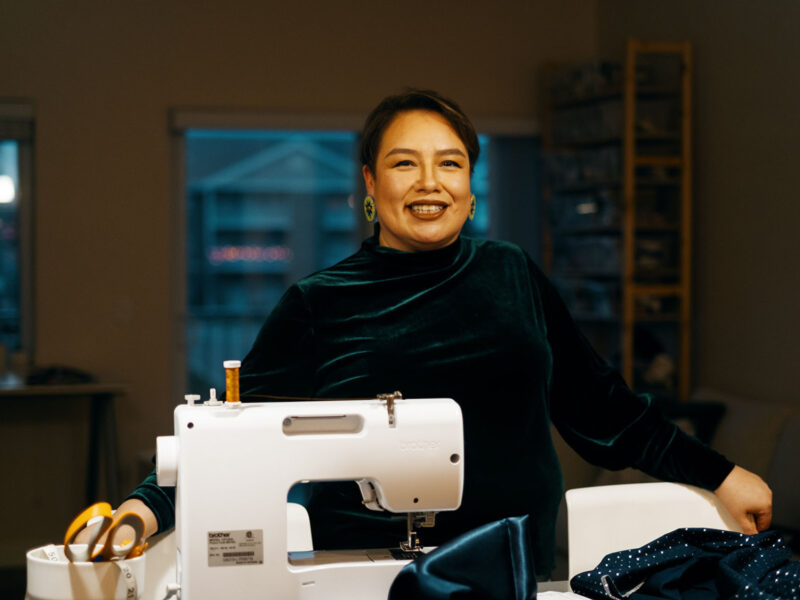We share how the Saint Paul & Minnesota Foundation internally advocates for equity.
At the Saint Paul & Minnesota Foundation we inspire generosity, advocate for equity and invest in community-led solutions.
We recently sat down and talked to our former Chief Operating Officer Nadege Souvenir to discuss how the Foundation ensures that our mission of equity is internally realized.
“When people think of foundations and leaning into equity, they often think about grantmaking and external initiatives,” said Nadege. “That is important, but how can we – or any other organization – talk about advocating for equity if we aren’t doing our own work inside the house? I think about operations like the framework of the house. If the frame is crooked, broken or slanted, nothing you do to the exterior of the house is going to fix it.”
Through this work, Nadege hopes to demonstrate how operational functions can be a tool for equity.
“Equity is often seen as belonging to the programmatic side of our work, but the reality is that equity, or rather the lack of equity, is deeply embedded in operational functions,” Nadege said. “Whether it’s hiring practices, the language we use, how we occupy space or just how we are allowed to show up at work, it all ties back to equity.”
Equitable Employment Policies
Ensuring equitable hiring practices is one area the Foundation has made substantive changes.
“In the last few years, [Vice President of People and Culture] Rhonda Cox has really retooled our recruitment practices,” said Nadege. “We now post hiring ranges, we’ve broadened the places we post positions, we ensure that the candidate pool is diverse, and we track that diversity throughout the process.”
We have also begun examining the importance of college degrees versus work experience. While an academic credential is important for some roles, an arbitrary degree requirement can eliminate potential, qualified individuals, specifically members of the Black, Indigenous and people of color (BIPOC) community.
Addressing Language Rooted in Racism
We also know that words matter and have made internal changes that have turned into external changes.
“Last year, [former Associate Vice President of Operations] Michele Belisle wrote a piece about racist language on spam filters, specifically the use of the terms ‘whitelist’ and ‘blacklist,’ that got wide distribution,” said Nadege. “You don't often think about IT as a place where we're knocking down the walls of racism, but Michele saw inequity and acted on it. She reached out to vendors, talked about this issue on social media and, ultimately, wrote an article at the request of NTEN. Her persistence paid off. In late 2020, our vendor changed labels to ‘allow’ and ‘delete.’”
Creating Equitable Work Environments During COVID-19
In 2020, the pandemic created new challenges for the Foundation that led the Operations team to find new ways to help our staff work and adapt.
“I realized pretty quickly when I looked at our staff that there were going to be some people disproportionately impacted by a shift to remote working and distance learning,” Nadege said. “One of the very first things we put in place were policies and procedures that allowed for flexibility. We opened the door to other ways of connecting, including all staff check-ins and coffee breaks for social connection. We also created passing time between meetings to help stop uninterrupted hours on Zoom calls.”
In addition to these check-ins, staff can also participate in weekly meditation, workouts and dance breaks led by the Wellness Committee.
Equity Through Leadership
For the last several years, the Foundation has tackled equity in the workplace with an Equity for Everyone (E4E) Committee. Through the use of staff-led discussions, forums and guest speakers, the Foundation has addressed topics such as ableism, ageism, racism and white supremacy.
In addition to E4E and Space for Us, the Foundation’s executive leadership team is striving to break down systematic oppression with a new cohort specifically dedicated to the work.
“Often what can happen, and what I've observed in all sorts of places, is that there's an initial energy for this work,” said Nadege. “There's usually a group created by staff that leads equity work, but the reality is that this staff group has little positional authority. And so, the staff group is creating this energy that pushes on the walls of inequities while the leaders are still holding the walls tight.”
From Nadege’s experiences, in order for change to happen, those in leadership positions must first understand their roles in creating and maintaining inequitable environments. The cohort focuses on relationship building, building shared language and creating the space to candidly discuss and investigate their culture, equity and racism.
“We are going to have to be working actively and effectively on equity for a long time to come,” Nadege said. “These are not practices that will change overnight because they took hundreds of years to make. But my hope is that by identifying and tackling these systems and practices built in white supremacy, we can begin rewriting a more equitable, diverse and inclusive narrative.”









